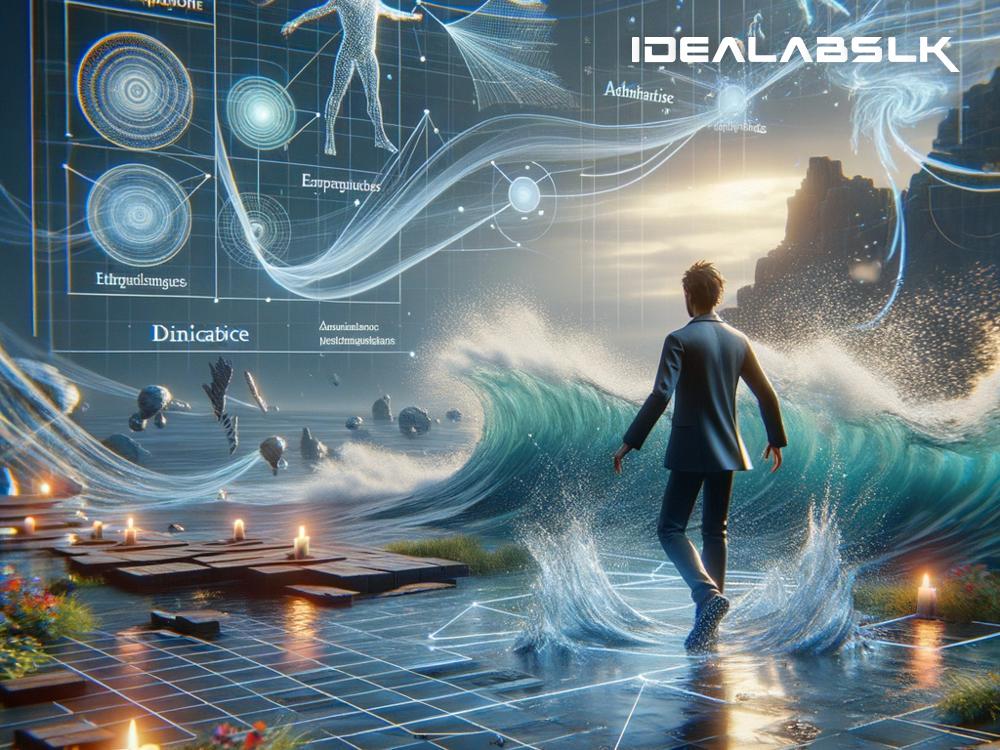The Future is Now: How AI is Shaping Realistic Physics in Video Games by 2025
Imagine stepping into a virtual world that mirrors the complexities of our physical reality so closely that you can't differentiate between what's game and what's real. As of 2025, this scenario isn't just a fragment of our imaginations anymore—it's rapidly becoming our reality, thanks to advances in Artificial Intelligence (AI).
Gone are the days when video game physics were merely about objects falling down or characters jumping high. Today, AI is on the brink of revolutionizing game physics, making virtual worlds more realistic and immersive than ever before. But how exactly is AI making this quantum leap possible? Let's dive in.
Understanding the Basics
Firstly, it's essential to get the basics straight. In video games, 'physics' refers to the algorithms and rules that dictate how objects move and interact in a virtual environment. Traditionally, these physics were pre-programmed, based on generalized rules that didn't always account for the nuances of the real world. That's where AI steps in.
AI: The Game Changer
AI, with its ability to learn and adapt, is transforming how game developers approach physics. Instead of relying on a one-size-fits-all rule book, AI algorithms can dynamically adjust physics based on countless real-world variables, making each interaction unique and realistic.
Personalized Physics
One of the most exciting advancements by 2025 is the concept of personalized physics. AI can now tailor the behavior of physical objects not just to the overall game environment, but to individual player actions and preferences. This means that how a character runs, jumps, or interacts with objects can change and evolve, leading to a gaming experience that's as unique as the player themselves.
Environment Interaction
The role of AI in rendering environmental physics has taken a quantum leap. From the rustling of leaves in a gentle breeze to the complex interplay of light and shadow, AI algorithms are making these interactions more detailed and realistic. The environment no longer feels like a static backdrop but a dynamic player in the gaming narrative, thanks to AI's ability to meticulously simulate physical phenomena.
Real-time Physics Simulations
Perhaps the most groundbreaking development is the ability of AI to conduct real-time physics simulations within games. This means that actions and their consequences are calculated on the fly, leading to gameplay that can surprise even the developers themselves. Structures collapse in more realistic manners, weather patterns can change gameplay dynamics, and the unforeseen interplay of various elements can lead to entirely novel gaming experiences.
Challenges and Concerns
Yet, integrating AI into game physics isn't without its challenges. The computational power required for such detailed simulations is immense, pushing the limits of current hardware. Furthermore, there's an ongoing discussion about predictability and control in games; too much realism might lead to frustration if players feel they can't master the game due to the unpredictable nature of real-world physics.
What Does the Future Hold?
Looking forward, the role of AI in game physics is only set to expand. We're likely to see games that are not only visually indistinguishable from reality but also behave in ways that are consistently more lifelike. Moreover, as machine learning algorithms become more sophisticated, the gap between pre-programmed and AI-driven physics will widen, offering gamers experiences we've only just begun to imagine.
Conclusion
As we stand in 2025, at the cusp of a new era in video gaming, it's clear that AI is not just an add-on or a gimmick—it's fundamentally transforming the industry. By making game physics more realistic, AI is not just enhancing our gaming experience; it's redefining what it means to play. And as AI continues to evolve, one thing is for sure—the line between the virtual and the real will become increasingly blurred, heralding a future where our gaming adventures are limited only by our imaginations.
So, whether you're a gamer eagerly awaiting the next leap in realistic gameplay, or a developer striving to push the boundaries of what's possible, one thing is evident: with AI, the future of video games is looking more realistic, immersive, and exciting than ever before. Welcome to the future of gaming—a future where AI is the key to unlocking worlds beyond our wildest dreams.

